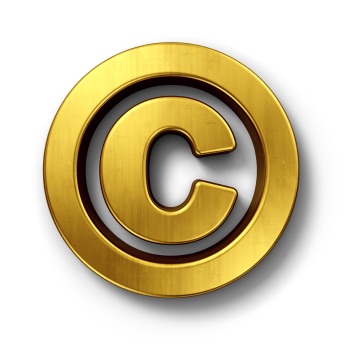|
 U.S. Library of Congress Office Disregards Input from Test Publishers U.S. Library of Congress Office Disregards Input from Test Publishers
ATP Monitors Rulemaking of U.S. Copyright Office
ATP continues to monitor the U.S. Copyright Office (an agency within the Library of Congress) in regard to the revision of federal regulations that, in the past, allowed test publishers to obtain copyright protections without disclosing actual test items.
“We initially followed-up on information that seemed, at first, to be just rumors. ATP wrote to the Copyright Office and offered to meet with them to discuss how the testing industry could assist in creating new test examination procedures to streamline and modernize the Office and ensure compliance with the statute and regulations. We were assured, at that time, that the Office would be conducting a rulemaking, which we assumed would be a transparent process,” reported ATP Legislative Counsel Alan Thiemann.
“Unfortunately the transparency was a false assumption on our part,” Thiemann noted.
In June the Copyright Office published an Interim Rule [82 Fed. Reg. 26850] setting out new procedures for handling secure test registrations. which went into effect on July 12, and a Request for Comment period scheduled to end on December 11, 2017. Along with the Notice, the Office also published a new version of Circular 64, the long-used document describing those secure test registration procedures for the industry.
In an attempt to convince the Copyright Office to withdraw the Interim Rule, the ATP provided the industry with a template letter for testing organizations to use in writing the Register of Copyrights to complain about the Interim Rule and to explain how their computer-based and computer-adaptive tests would be adversely affected by the new rule and procedures which prohibit item banks from being considered for registration under the secure test process. A number of ATP members sent such letters prior to July 12. The ATP also submitted an analysis on June 29, showing that the failure to use public notice and comment rules prior to adoption of new rules violates the Administrative Procedure Act, and many federal cases interpreting the APA. Despite such letters, and inquiries from several US Senators, the Copyright Office refused to hold up the Interim Rule.
“So, the Copyright Office has completely ignored the testing industry and set up its new procedures without any input from the only group using the secure test registration process,” explained Thiemann.
Under the new rule, applicants must, among other things, submit an online application, a redacted copy of the entire test, and a brief questionnaire about the test through the electronic registration system. This procedure will allow the Office to pre-screen an application to determine whether the work qualifies as a secure test. Only applicants whose works qualify will be granted an in-person examination appointment at the Copyright Office. During the appointment, the Office will examine the test as a whole to determine if it contains sufficient copyrightable authorship. The Office will no longer examine databases of items used to create individual secure tests under the special procedure for secure tests. In short, item banks (and test item databases) will no longer be registered because the applicant cannot present for examination a “complete copy” of the test.
“This change,” Thiemann reported, “represents a devastating blow to owners of computer-based and computer-adaptive tests, computer-mastery tests, and linear on-the-fly tests.”
On this point, the Copyright Office determined that item banks and item databases “cannot be considered a secure test” [Notice at 26851] and thus, the secure test registration process cannot be used. “This result,” said Thiemann, “is based on the Office’s misunderstanding of testing technology as well as its failure to understand the distinction between a content owner and the organization that owns software used in the administration of such tests.”
Thiemann reiterated that, “although the Copyright Office is obviously out of step with the tremendous amount of technical innovation that has taken place within the testing industry since the days of paper-based assessments, its most egregious action is making these new procedures effective on July 12, without waiting for public comments to be submitted, and then considered, in writing the final rules.”
Thiemann submitted a letter on behalf of ATP in which he notified the Copyright Office that, “ATP fully intends to avail itself of the December 11 comment date in order to provide the Office with factual evidence to document that substance of the proposed new procedures are infirm”. [Read the complete letter here]
ATP CEO William G. Harris said that ATP will continue to monitor the situation and report back to ATP members. [Members with questions can reach out to Alan Thiemann at [email protected]]
|